
Latest Coronavirus Disease COVID 19 News and Research
Mouthwashes could lower the transmission of SARS-CoV-2
Sars-Cov-2 viruses can be inactivated using certain commercially available mouthwashes. This was demonstrated in cell culture experiments by virologists from Ruhr-Universität Bochum together with colleagues from Jena, Ulm, Duisburg-Essen, Nuremberg and Bremen. High viral loads can be detected in the oral cavity and throat of some Covid-19 patients.
Pandemic hampers reopening of joint replacement gold mine
Dr. Ira Weintraub, a recently retired orthopedic surgeon who now works at a medical billing consultancy, saw a hip replacement bill for over $400,000 earlier this year.
As crisis grows, farms try to balance health of field workers and food supply
It's a busy time for the tomato-producing farms in this part of the state. Farms have staffed up with hundreds of workers, most of whom are Latino.
A 'short list' of signature peptides for tracking down SARS-CoV-2 virus
SPI researchers (Marcoule) used proteomics to identify signature peptides of the SARS-CoV-2 virus expressed in vitro.
Mass spectrometry shows potential for rapid SARS-CoV-2 detection
A team from SPI in Marcoule detected by mass spectrometry, in 3 minutes and without specific reagents, signature peptides of the SARS-CoV-2 virus in clinical samples. It thus provides a proof of concept of the use of this method as a possible alternative to PCR, currently the reference method.
Reopening after COVID-19 lockdown and impact on disease
The study shows that 8 of 11 European countries had significantly more cases after reopening, but Germany, the UAE, and Poland had fewer. In five of the eight, the cases increased, peaked, and then dropped before the reopening happened, while Romania and Serbia showed a rapid rise before reopening.
SARS-CoV-2 droplets travel further and last longer than thought, and even more in humid air
The ongoing COVID-19 pandemic is spread by respiratory aerosols, in which tiny droplets of saliva and mucus containing the severe acute respiratory syndrome coronavirus 2 (SARS-CoV-2) are expelled from the upper respiratory tract. Though quite a few studies have investigated the viral load of such droplets, not much is known about how far these droplets move or how long they linger in the air, even though such information is crucial to determining how infectious they are.
Planning low-risk school re-opening in the U.S.
With the rapid and extensive spread of the COVID-19 pandemic, the USA witnessed an almost universal closure of schools in March 2020. Now, after months of enforced online schooling, federal authorities are impatient for schools to re-open. However, how should this be done without endangering the lives of teachers, administrative and other non-teaching staff, and students at school, and parents/other family members at home?
People may have a pre-existing immune response to COVID-19 thanks to common colds
Now, a new study shows that some people have immune responses against the severe acute respiratory syndrome coronavirus 2 (SARS-CoV-2), the virus that causes COVID-19, thanks to how the body reacted the last time it caught a cold. This means that even if a person has not been exposed to the novel coronavirus, the body has a memory of it and can trigger an immune response to fight the infection.
Vaccine 'nationalism' will slow coronavirus fight if poor countries are left exposed
As the coronavirus vaccine race charges on, many of the investigational candidate vaccines are nearing the final stages of human trials. The results of these trials will determine if they will be granted the green light to manufacture and distribute the vaccine to countries across the globe.
COVID-19 patient with repeatedly undetectable SARS-CoV-2 antibodies
A recent case study published in the Journal of Applied Laboratory Medicine in August 2020 illustrates this with its finding of persistent seronegativity in a patient confirmed to be SARS-CoV-2 positive.
DHODH inhibitor PTC299 shows potential as a COVID-19 therapeutic
As COVID-19 continues to take a heavy toll on human health and life in many parts of the world, there is still no effective antiviral drug or vaccine. This has fueled an intensive search for small molecules and proteins that can inhibit viral entry and replication.
USA the source of most of New Zealand's coronavirus cases
New Zealand, an island country in the southwestern Pacific Ocean, is marked by its early and fierce determination to totally arrest the spread of severe acute respiratory syndrome coronavirus 2 (SARS-CoV-2), the viral illness that is causing the current COVID-19 pandemic.
How have non-pharmaceutical interventions helped in COVID-19?
The COVID-19 pandemic shows no signs of abating, with outbreaks in many spots still occurring across the world. From the start, health organizations and governments were focused on implementing non-pharmaceutical interventions (NPIs) in the absence of any effective antivirals or vaccines.
Speed of Novavax vaccine development does not compromise quality of the SARS-CoV-2 immunogen
A new study by researchers from the Scripps Research Institute and Novavax Inc. in the US affirms the structural integrity of the full-length SARS-CoV-2 spike glycoprotein immunogen. It enables the interpretation of immune responses to this multivalent nanoparticle immunogen. Their results are currently available on bioRxiv preprint server.
Encouraging results from Phase I NovaVax SARS-CoV-2 nanoparticle vaccine trial
NVX-CoV2373, a recombinant nanoparticle vaccine developed by Novavax and manufactured at Emergent Biosolutions, was found to be well tolerated and immunogenic – inducing T-cell response and neutralization antibodies four-fold higher than the mean observed in hospitalized coronavirus disease (COVID-19) patients, shows a recent study available on the medRxiv* preprint server.
Cutting edge synthetic peptides block SARS-CoV-2 (COVID-19)
Researchers at Ligandal Inc., the University of California San Francisco and Toyota Technological Institute at Chicago, have designed novel synthetic peptides that potently inhibit the ability of severe acute respiratory syndrome coronavirus 2 (SARS-CoV-2) to infect host cells.
Community-based sampling needed for COVID-19 control, say researchers
Researchers in the UK have warned that it will be essential to carry out community-based sampling in addition to symptomatic testing if the ongoing transmission of severe acute respiratory syndrome coronavirus 2 (SARs-CoV-2) is going to be properly understood and controlled.
New platform shows potential to generate most effective vaccines with fewest side effects
The ongoing COVID-19 pandemic is shining a bright spotlight on vaccine development. As numerous vaccines race through clinical trials, physicians and researchers continue to work on developing new vaccine technologies to generate the most effective vaccines with the fewest side effects.
Swansea University tests new way to give vaccines through microneedle skin patches
A revolutionary new way to give vaccines through microneedle skin patches is being tested at Swansea University, thanks to £200,000 of EU funding announced by the Welsh Government.
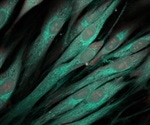
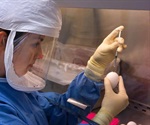
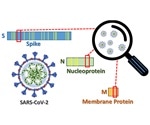
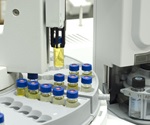
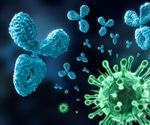
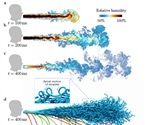

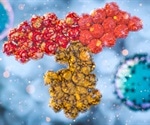
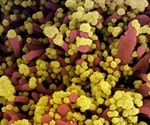
_753cecb96a0e4e5593a435a01dd8e896-150x125.jpg)
_df352f785ce144beae466bb7dc765c9b-150x125.jpg)
_929eaca29aef489f83f97f3b257e132f-150x125.jpg)
_f3c789293c6c44ef8cee88271580a8a4-150x125.jpg)
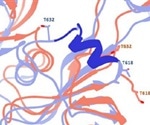
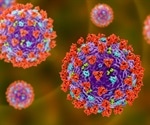
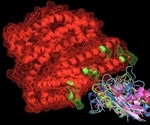
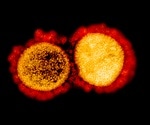
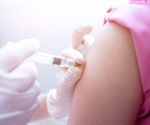
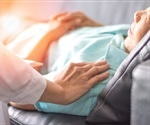
































No hay comentarios:
Publicar un comentario